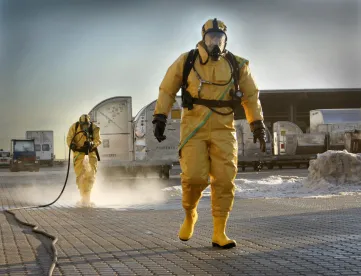We recently reported on New Hampshire’s legislation that set maximum contaminant levels (MCLs) and Ambient Groundwater Quality Standards (AGQS) for four types of perfluoroalkyl substances (PFAS) in drinking water. The PFAS levels in NH set by the bill were passed into law on July 23, 2020 by Governor Sununu. Despite the new law, the United States Air Force, which has long been targeted for PFAS contamination at the Pease International Tradeport site (formerly, the site of Pease Air Force Base), remains steadfast that it will continue to follow the less strict PFAS standards established by the Environmental Protection Agency’s “health advisory” for PFAS.
Recently, several drinking water wells close to the former Pease Air Force Base tested higher for PFAS than the permissible limits in New Hampshire, which are:
- PFOA: 12 parts per trillion
- PFOS: 15 parts per trillion
- PFNA: 11 parts per trillion
- PFHxS: 18 parts per trillion
However, the testing results were lower than the advisory level currently in place by the EPA, which is 70 parts per trillion. As such, the Air Force’s position at this time is that it will not supply bottled water to local citizens, since the PFAS levels do not exceed the EPA limits.
As part of the bill, the New Hampshire Department of Environmental Services (DES) is required to provide low interest loans to communities that began remediation efforts after September 30, 2019 and whose water sources show PFAS that exceed the state MCLs. The state set aside $50 million for such loans. However, if DES identifies a “responsible party” for some or all of the contamination, the loan amount that the state must give from taxpayer money can be reduced by the amount collected by the responsible party.
Here, the natural target for the DES in the vicinity of the former Pease Air Force Base is the U.S. Air Force; however, it is clear that the Air Force will not take action in response to requests from the DES to assist with remediation. The impact of this sure-to-be battle between the state and the Air Force is that, in the short term, local industry in New Hampshire could bear the brunt of the DES looking to issue PFAS violations so that the remediation costs can be shouldered more by industry than by taxpayer money pursuant to the language of the bill. Companies in the area of the old Pease Air Force Base need to be prepared for this trickle down effect, and ensure that their compliance planning is up to date. Companies would also be well-advised to prepare in advance defenses to allegations that that are a responsible party for PFAS contamination that the DES finds.




 />i
/>i

